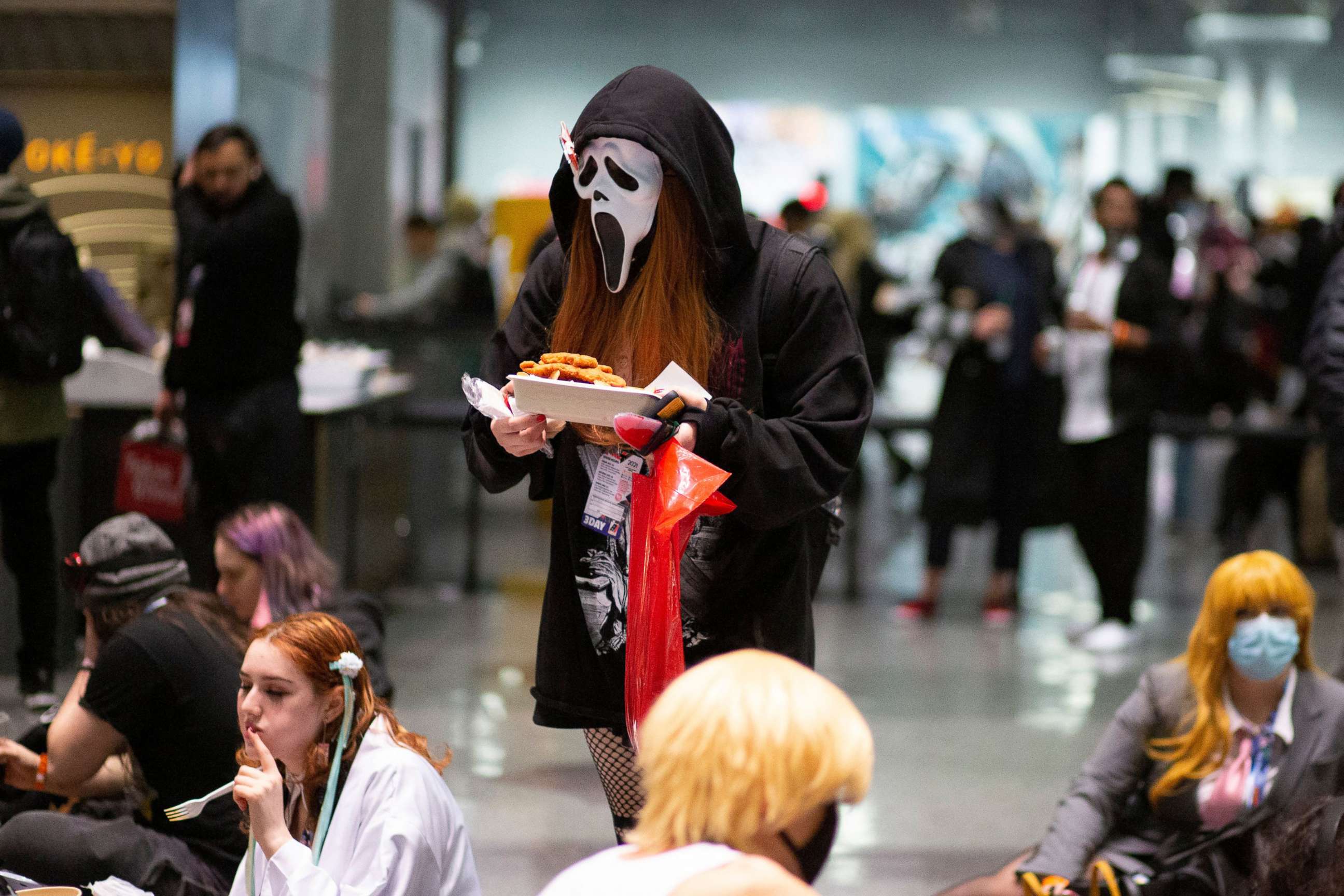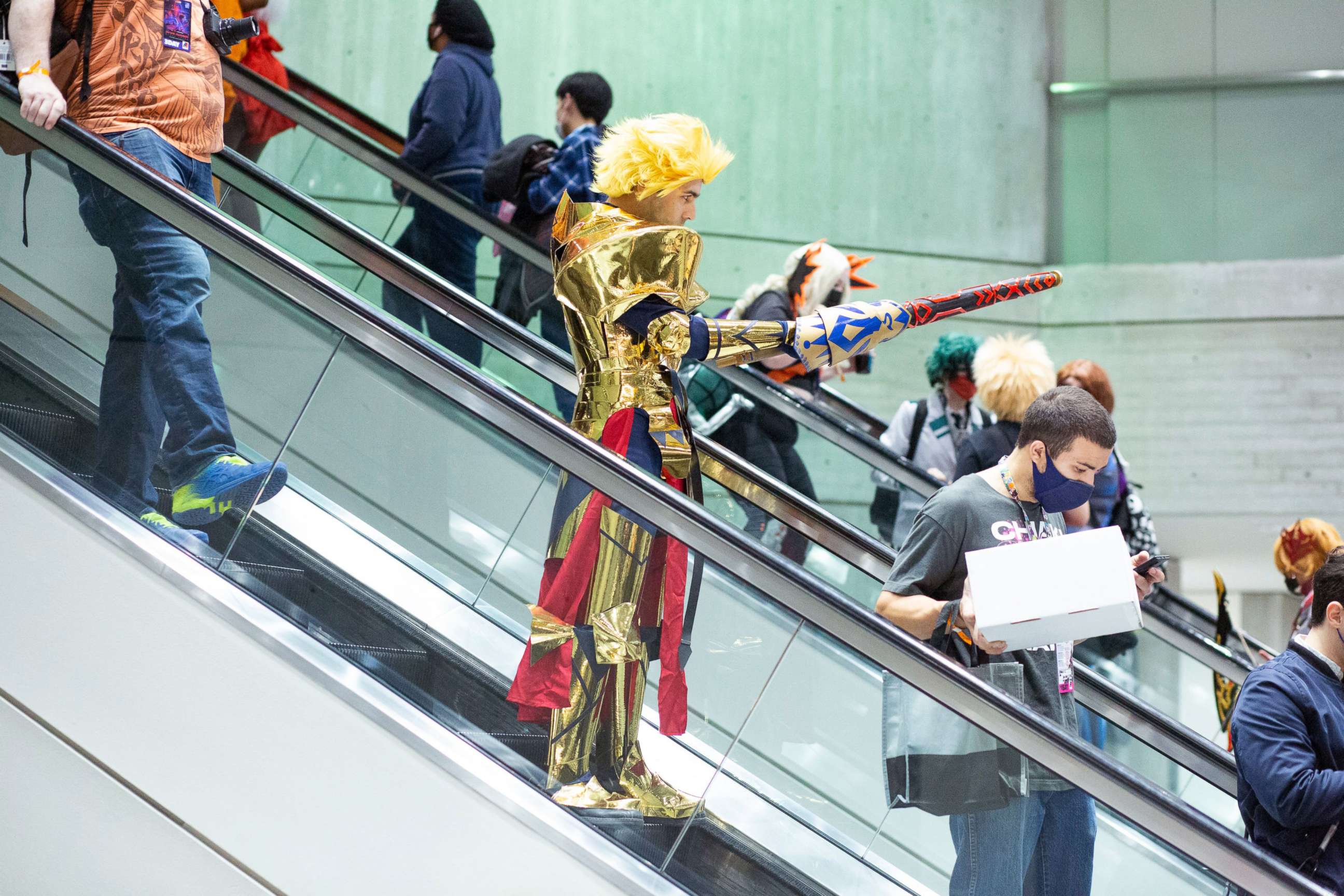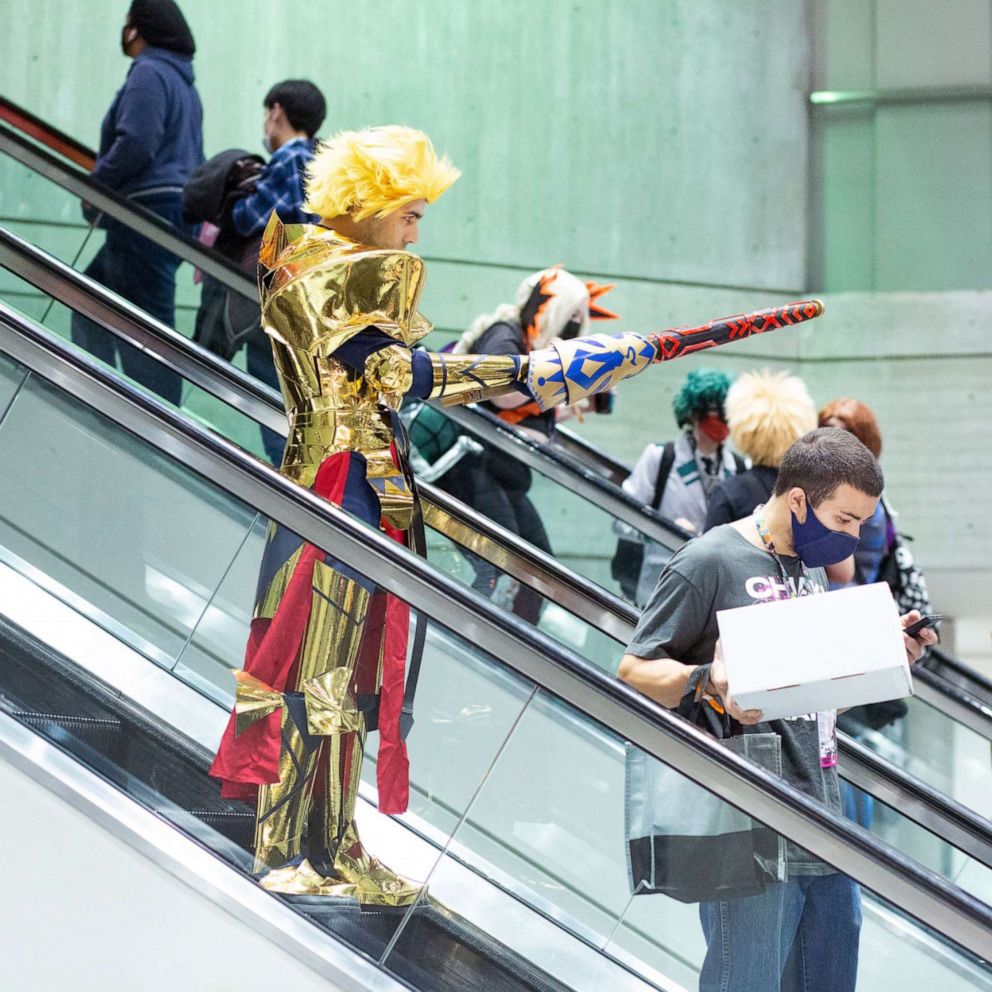Omicron spread quickly at convention in New York City -- but boosters helped
Boosters helped reduce the risk of contracting the omicron variant after it spread at a convention in New York City, according to a new study published by the Centers for Disease Control and Prevention Thursday.
In the report, the authors describe "a large indoor convention in New York … with approximately 53,000 attendees from 52 U.S. jurisdictions and 30 foreign countries during Nov. 19 - 21, 2021."
Although the convention is never named, the description matches the Anime NYC convention that was held at the Javits Center in Manhattan over those dates.
Overall, the report found that convention attendees who were boosted were less likely to contract COVID-19 and that a small percentage of household contacts later tested positive.

According to convention rules, attendees were required to have received at least one COVID-19 vaccine dose and wear masks indoors.
The first case was reported to the CDC by the Minnesota Department of Health on Dec. 2 in a man -- called Patient A -- who had flown to New York City for the convention, the report said.
For the report, the CDC teamed up with the MDH and state and local departments across the country interviewing Patient A, and 23 of his 29 close contacts from 13 states who also attended the convention.
Patient A had traveled to New York City on November 18. He was fully vaccinated and received a booster shot earlier in November, according to the authors.
However, he developed symptoms on Nov. 22 and subsequently tested positive for COVID-19, after which he notified all his close contacts, the report said.
Of the 23 attendees contacted, 16 tested positive for the virus, equating to an attack rate of 70%.
All the contacts were fully vaccinated, but only 11 had received a booster dose before going to the convention, according to the report. The authors indicate that having a booster dose lowered the odds of testing positive for COVID-19.
Ten of the 12 people, or 83%, who didn't receive a booster tested positive for the virus while six of the 11 people, 55%, who tested positive were boosted, meaning there were 1.5 times fewer infections in boosted individuals.
"Data from this investigation reinforce the importance of COVID-19 booster doses and early notification in combination with other multicomponent prevention measures to limit transmission and prevent severe illness from omicron and other SARS-CoV-2 variants," the authors wrote.
Additionally, 15 of the 20 contacts who said they always wore a mask during the convention tested positive anyway, according to the report.

Recently, the CDC has stated that N95 masks are more effective at preventing infection with the omicron variant than surgical masks and cloth masks.
All of attendees who reported COVID-19 infections said they experienced at least one symptom, with median duration lasting 11 days. The most commonly reported symptoms included nasal congestion, fatigue, cough and sore throat, the report said.
After returning home from the convention, 16 of the attendees exposed 20 household contacts who did not attend the convention, the report said.
In total, 99% of the household contacts were fully vaccinated and 50% had received a booster dose, the authors noted.
Of the 18 household contacts who were subsequently tested, six, or 33%, received positive results, including four who had received boosters.
The authors noted that people testing positive for COVID despite being fully vaccinated demonstrates omicron's ability to -- at least partially -- evade the protection offered by vaccines.
"However, illness was relatively mild among this cohort, consistent with evidence that vaccinated persons with infections are less likely to experience serious illness," they wrote.

Two of the positive household contacts were parents of the convention attendees, two were grandparents and two were siblings, according to the report.
Four of the six household contacts said they had fewer than five symptoms with the most common being nasal congestion, fatigue, cough, runny nose and change in taste.
No hospitalizations or deaths were reported among anyone who received a positive test either in the attendee group in the household contact group, the report said.
Overall, five of the attendees' samples and three from the household contacts underwent genomic sequencing and were confirmed to be linked to the omicron variant, according to the authors.
The authors said there are limitations to the report including that some people who attended the convention used at-home antigen tests rather than laboratory PCR tests to confirm a negative result.
Because rapid tests are more likely to report false negatives than lab tests, some COVID cases may have been missed.
Additionally, because seven of Patient A's close contacts could not be reached for interviews, results may be skewed.
However, the researchers say the report shows the importance of getting fully vaccinated and boosted, as well as masking indoors, to prevent infection from the omicron variant as well as severe disease and death.




